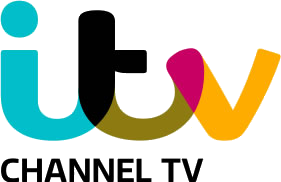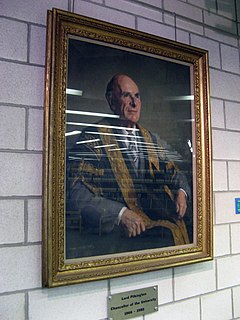
ITV is a British free-to-air television network. It was launched in 1955 as Independent Television to provide competition to BBC Television. ITV is the oldest commercial network in the UK. Since the passing of the Broadcasting Act 1990, its legal name has been Channel 3 to distinguish it from the other analogue channels at the time, BBC1, BBC2 and Channel 4.
In the United Kingdom, the term "public service broadcasting" refers to broadcasting intended for public benefit rather than to serve purely commercial interests. The communications regulator Ofcom requires that certain television and radio broadcasters fulfil certain requirements as part of their license to broadcast. All of the BBC's television and radio stations have a public service remit, including those that broadcast digitally.

ITV Channel Television, previously Channel Television, is a British television station which has served as the ITV contractor for the Channel Islands since 1962. It is based in Jersey and broadcasts regional programme for insertion into the network ITV schedule. Until November 2011, Channel Television was one of four ITV companies independent from ITV plc alongside the two STV regions in Scotland and UTV in Northern Ireland. The station has been owned by ITV plc since 2012 and the licence was transferred to ITV Broadcasting Limited in March 2017.
Regular television broadcasts in the United Kingdom started in 1936 as a public service which was free of advertising, while the introduction of television and the first tests commenced in 1927. Currently, the United Kingdom has a collection of free-to-air, free-to-view and subscription services over a variety of distribution media, through which there are over 480 channels for consumers as well as on-demand content. There are six main channel owners who are responsible for most material viewed.

BBC Television is a service of the BBC. The corporation has operated public television services in the United Kingdom under the terms of a royal charter since 1927. It produced television programmes from its own studios from 1932, although the start of its regular service of television broadcasts is dated to 2 November 1936.

ITV Border, previously Border Television and commonly referred to as simply Border, is the Channel 3 service provided by ITV Broadcasting Limited for the England/Scotland border region, covering most of Cumbria, Dumfries and Galloway, the Scottish Borders and parts of Northumberland. The TV service previously covered the Isle of Man from 26 March 1965 until 15 July 2009.

Sir Hugh Carleton Greene was a British television executive and journalist. He was director-general of the BBC from 1960 to 1969.
There are several different types of mass media in the United Kingdom: television, radio, newspapers, magazines and websites. The United Kingdom is known for its large music industry, along with its new and upcoming artists. The country also has a large broadcasting and film industry.
Television in Scotland mostly consists of UK-wide broadcasts, with regional variations at different times which are specific to Scotland. The BBC and ITV networks both began broadcasting in the country during the 1950s. There were further expansions in the early 1960s with the arrival of Grampian, Border and BBC2 television.
The history of ITV, the United Kingdom "Independent Television" commercial network, goes back to 1955.
The Peacock Committee, was a review into financing of the BBC. It was initiated by the Conservative government of Margaret Thatcher on 27 March 1985 and reporting on 29 May 1986. The committee was led by Professor Alan Peacock. The other six members were Samuel Brittan, Judith Chalmers, Jeremy Hardie, Professor Alastair Hetherington, Lord Quinton, and Sir Peter Reynolds.
Analogue terrestrial television in the United Kingdom was originally the method by which the significant majority of viewers in the UK, the Channel Islands and the Isle of Man received television. Analogue terrestrial television broadcasts have fully ceased in the UK with Northern Ireland being the last region to have ceased transmission analogue terrestrial television broadcasts. Northern Ireland switched off the last analogue television signals, making all of the United Kingdom only capable of receiving digital television, in the early hours of 24 October, 2012. It has been completely replaced by digital terrestrial television and other non-terrestrial means as of the end of 2012.

The British Broadcasting Corporation (BBC) is the State Owned and State Controlled national broadcaster of the United Kingdom. Headquartered at Broadcasting House in London, it is the world's oldest national broadcaster, and the largest broadcaster in the world by number of employees, employing over 22,000 staff in total, of whom approximately 19,000 are in public-sector broadcasting.

William Henry Pilkington, Baron Pilkington was an English glass manufacturer and president of the Federation of British Industries, who is remembered politically as chairman of the Pilkington Committee that produced the controversial Pilkington Report of 1962. He was also Chancellor of Loughborough University from 1966 to 1980.
This is a list of events from British radio in 1962.
In the 1960s and 1970s, an envisioned fourth UK television service was popularly referred to as ITV2, before the launch of Channel 4 in November 1982.
This is a timeline of the history of Anglia Television, the ITV franchise holder for the East of England.
This is a timeline of the history of the British broadcaster Channel Television. It provides the ITV service for the Channel Islands.
This is a timeline of the history of Ulster Television. It provides the ITV network service for Northern Ireland.






